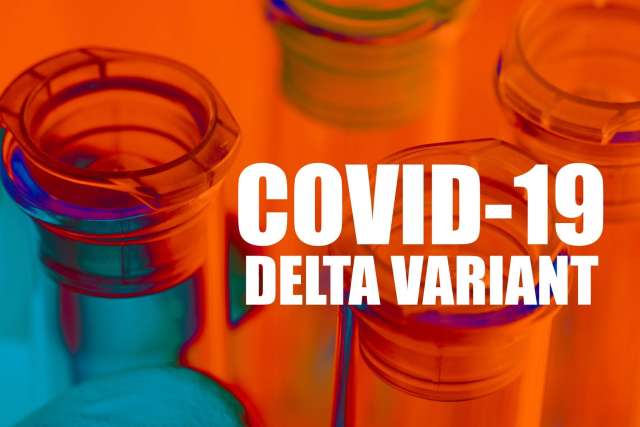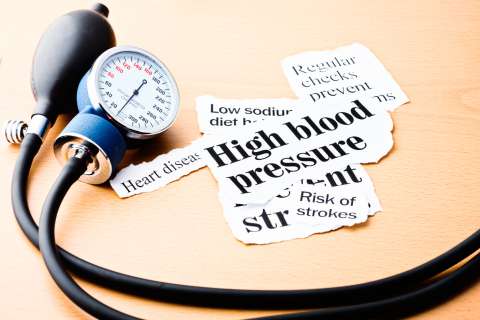Update: As of July 20, the CDC reports that the Delta variant accounts for 83% of newly sequenced COVID-19 cases.
The Centers for Disease Control and Prevention announced July 7 that the highly contagious Delta variant is now the dominant strain of COVID-19, accounting for 51% of new cases in the U.S. The variant, identified as B.1.617.2, originated in India in December and was first detected in the U.S. in March.
It appears to be gaining traction locally, too. The Los Angeles County Department of Public Health reported that in the week ending June 12, the Delta variant comprised nearly 48% of all variants sequenced in the county.
What is the Delta variant and how can we protect ourselves and our loved ones? Annabelle de St. Maurice, MD, co-chief infection prevention officer at UCLA Health, answers frequently asked questions about Delta and other variants:
Q: What is a COVID-19 variant?
A: A COVID-19 variant is when the virus acquires enough mutations in different parts of the virus (such as the spike protein) to be considered different from the circulating strain.
Q: How does a virus mutate?
A: A virus mutates by making mistakes when it makes copies of itself, and those mistakes introduce new characteristics into the virus. Sometimes, those characteristics are helpful for the virus to spread more easily and become more infectious. More often than not, those mutations don’t change any characteristics of the virus but just introduce new genetic code. Sometimes, they can potentially make the virus less contagious.
Q: Can the Delta variant — or any other — get past the current vaccines?

A: Currently, all the vaccines appear to have some efficacy against the variants. A recent press release from Israel is reporting that the Pfizer vaccine had lower effectiveness against the Delta variant — around 64% efficacy against the variant for symptomatic infection, meaning somebody could just get sniffles, fever or cold-like symptoms. But the vaccine still remained over 90% effective against hospitalization and death. So, for the things that all of us care about — we don’t want to be hospitalized and we don’t want to have severe illness — the vaccines remain very effective.
Moderna and Johnson & Johnson also looked at antibodies against the variant in people who are vaccinated to see whether or not they still have effective antibodies, and they’ve demonstrated they do. There may be some reduction in protection, so you may not be completely protected against developing symptoms, but you will be less likely to have severe disease, which is the most important.
Q: Why has the Delta variant become the dominant strain in California?
A: There’s evidence it is significantly more transmittable from person to person than the other variants. With the Delta variant, more people are likely to get infected when one person is infected, so that variant will take over as the other variants just aren’t transmitted as frequently.
Q: If we’re fully vaccinated against COVID-19, are we protected against the Delta variant?
A: The good news is that the vaccines are all really effective against having severe illness from the Delta variant. The Israel data demonstrates you are 64% less likely to get any symptoms with the Delta variant than if you weren’t vaccinated. This is great news.
Q: Should vaccinated people wear a mask to protect the unvaccinated?
A: It depends on the situation. If you’re in public transportation where there might be air that’s recirculating or you’re in crowded areas, I definitely recommend wearing a mask. It’s actually required to wear a mask while on public transport or in health care facilities according to the CDC (Centers for Disease Control and Prevention). In Los Angeles County, it’s now recommended that you wear a mask in other public settings, such as going to an indoor mall or a movie theater, especially because you don’t know who’s vaccinated and who’s unvaccinated.
It also depends on your risk. If you’re immune compromised or have other health conditions that might make you more likely to have severe disease, I would wear a mask.
Note: Los Angeles County health officials announced that masks will again be required indoors, regardless of vaccination status, beginning at 11:59 p.m. Saturday, July 17, to combat a steep uptick in COVID-19 cases in recent weeks.
Q: Does the Delta variant present different symptoms than the original strain?
A: Some people report there may be some slight variation in how symptoms are presenting, but the data I’ve seen so far haven’t demonstrated there are any new symptoms.
Q: How often can we expect to see new strains to pop up and become the new dominant threat?
A: The more transmission we have, the more likely it is that the virus is going to mutate. Fortunately, now that cases are much lower in the U.S., we’ll likely see fewer variants. But as long as we have a percentage of population that’s unvaccinated, we’ll continue to see the mutations occur.
Q: How concerned should we be about new strains if we’re fully vaccinated — could there be one that overpowers the current vaccines?
A: It depends on how many mutations we see occurring in the spike protein, which is the target of the vaccine. I’m not worried about myself or my loved ones — we’re all fully vaccinated — but I do worry that if we don’t pick up the speed of vaccinations, we might continue to see variants and continue to see an increase in cases.
Q: Are researchers working on vaccines or boosters that would take care of all or most variants?
A: There’s a lot of work being done on boosters from all the vaccine manufacturers. Part of that is also because they want to be sure if your immunity wanes over time, you can have some booster in terms of your immunity. Researchers are also looking at creating new vaccines that might address some of these variants, too.
Q: When do you think a booster will be available?
A: Pfizer is applying for Emergency Use Authorization for a booster vaccine. Some other countries are recommending boosters now for high-risk individuals who have received one of the viral vectors, like the Johnson & Johnson vaccine. The FDA (U.S. Food and Drug Administration) and CDC recently posted a statement that boosters are not recommended at this time given the data demonstrating high vaccine efficacy. As more data emerge they may modify their recommendations. Just like everything with COVID-19, it’s hard to predict when, but I am pretty sure we will need boosters at some point in the future. It might be a booster against the variants, or it might be just to boost your immune response. Or it could be a combination.
Q: Will the COVID-19 vaccine become like the flu shot in that we’ll get vaccinated each year with a shot targeting whichever strain is expected to be dominant?
A: I think we might need it regularly. The flu virus mutates a lot and the SARS-CoV-2 that causes COVID-19 doesn’t mutate as frequently. Flu not only has frequent mutations but can also combine different strains to form a new strain which is one reason why we need annual flu shots. Although coronaviruses don’t mutate a lot, if we see continued high rates of COVID-19, we may see that we do need to get boosters regularly, because the more COVID-19 that’s out there, the more likely mutations might happen.
Q: With conflicting guidelines from the L.A. Department of Public Health and the CDC, how should people make a decision on whether to mask indoors or not?
A: You need to look at all the risk factors of your family members and see whether your entire family is able to get fully vaccinated. If you have young children not eligible for the vaccine, you may want to be more cautious than somebody who lives in a household that’s fully vaccinated. It also depends on where you’re going. If you’re traveling somewhere where the vaccination rate is low and cases are high, I would definitely wear a mask, be more cautious and physically distance.
Q: Is there anything else that’s important to know about the Delta or other variants?
A: The message is to just get vaccinated.
Learn more about COVID-19 vaccinations.
Jennifer Karmarkar is the author of this article.
Related articles
Delta variant of COVID-19 is causing concern, particularly among the unvaccinated
Confused about California's new COVID-19 digital vaccine record?
COVID-19: Track the latest developments and look back at how the pandemic evolved




